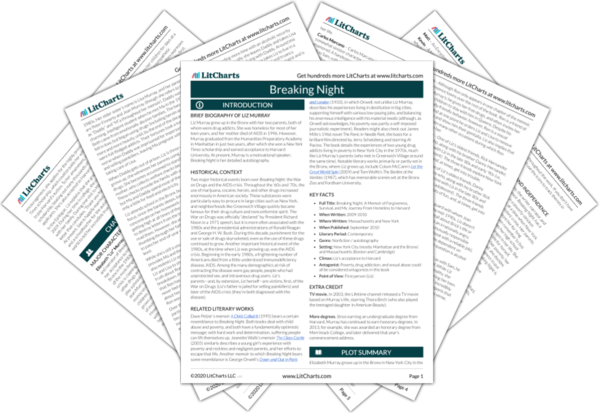In the past, Liz shoplifted to make money. She was so desperate for cash, and so used to taking the law into her own hands, that she didn’t think twice about it. With Perry Weiner’s help, however, Liz begins to think of shoplifting in more “global,” compassionate terms: she recognizes that she’s actively hurting other people whenever she steals (though to be fair, probably not to the degree that she guiltily imagines here). This is a crucial moment in Liz’s education, because it impresses upon her the importance of responsibility and taking other people’s perspectives into consideration.
